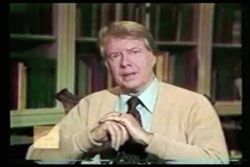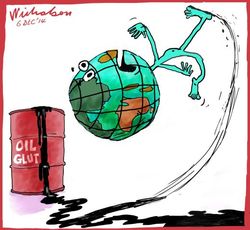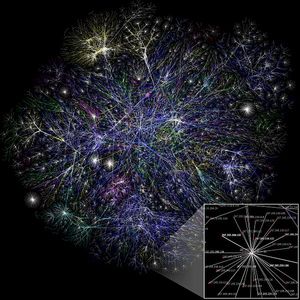
For investors and policymakers, the great fears remain the currency and the money supply. I read it in every Seeking Alpha discussion thread, a pervasive fear that we’re about to be crushed because no one is going to believe the promises of the dollar, or that we’re running out of something essential whose lack is going to make our dollars worthless.
What this decade has shown, already, just halfway through it, is that those fears are baseless. The problems of scarcity have been replaced by the problems of abundance. There’s too much oil, too many commodities, too many cheaply manufactured goods on the market. There are too many devices, there is too much cloud, there are too many good movies and shows out there and not enough time to see them all.

It took Hitler to get us back on our feet.
There is no such easy bogeyman this time. ISIS is not Hitler. In fact, most of our great enemies are slain on the altar of our economic success. Russia and the Arabs are practically drowning in oil, and their currencies are becoming worthless. China’s growth is slowing, and they may lack the cash to threaten our interests in East Asia or even in space.
What we have in abundance are real problems that could be addressed if we chose to. The climate crisis is accelerating. The refugee crisis is getting worse. Nationalism, selfishness, and religious bigotry stalk the land.

More people have been lifted out of extreme poverty in this century than at any time in history. People are also living longer than ever. That’s why our Presidential front-runners are all Ronald Reagan’s age, or older. But it’s also why new policy ideas are harder than ever to come by. Most Americans are still trying to re-legislate the past, rather than facing our responsibility to expand upon the success of our recent past squarely.
It’s true today as it was in 1933, that “the only thing we have to fear is fear itself, nameless, unreasoning fear which paralyzes needed efforts to convert retreat into advance.” Yet reading the rest of FDR’s remarks on that day, you come to realize that the problems of today are the opposite of what we faced then.
What today’s market is pointing us toward is not Depression, but opportunity. Today’s abundance makes it possible, for instance, for us to create a market for carbon that will not re-ignite an inflationary spiral, but encourage new types of energy supply, types of supply which we already have, types of supply we can deliver at the prices we’re now paying.
The best thing we can do, right now, is create a National Infrastructure Bank, to approve projects that we know will pay for themselves. Projects like repairing bridges and roads, creating affordable housing where it is most needed, building in battery back-up for the transformation of our energy grid, and improving our ports. All these things will soak up goods and machines that now lie idle for lack of something to do. We need standards for toll payment that will let computers collect on the value these projects create, and pay back those loans, bonds at interest rates of 3-4% the market will quickly soak up and trade at a premium.

We have the opportunity, right now, to transform today’s problems of poverty and labor abundance into a world of labor shortage and rising living standards. With our adversaries’ economy prostrate, and ours threatened in turn by their poverty, we have the opportunity to create business relationships and alliances that tackle the real threats we face, threats that can only be attacked when all the people of the world are united in the effort.
The cure for depression is a new problem in your life, waiting to be solved. You roll up your sleeves, you brainstorm, you get to work on it and suddenly the depression disappears. You won’t solve problems by moping around, or claiming things are hopeless. You only start to solve them when you decide to solve them, piece by piece, one day at a time.
We have the abundance. Let’s use it.











You keep repeating the chorus of “We need new business models”. If the things you are proposing are so obviously profitable, why aren’t investors and entrepreneurs already doing them? If they aren’t obvious, why would anything like central planning / direction / motivation (which is what you seem to be smuggling into your argument) make them any more feasible?
You keep repeating the chorus of “We need new business models”. If the things you are proposing are so obviously profitable, why aren’t investors and entrepreneurs already doing them? If they aren’t obvious, why would anything like central planning / direction / motivation (which is what you seem to be smuggling into your argument) make them any more feasible?